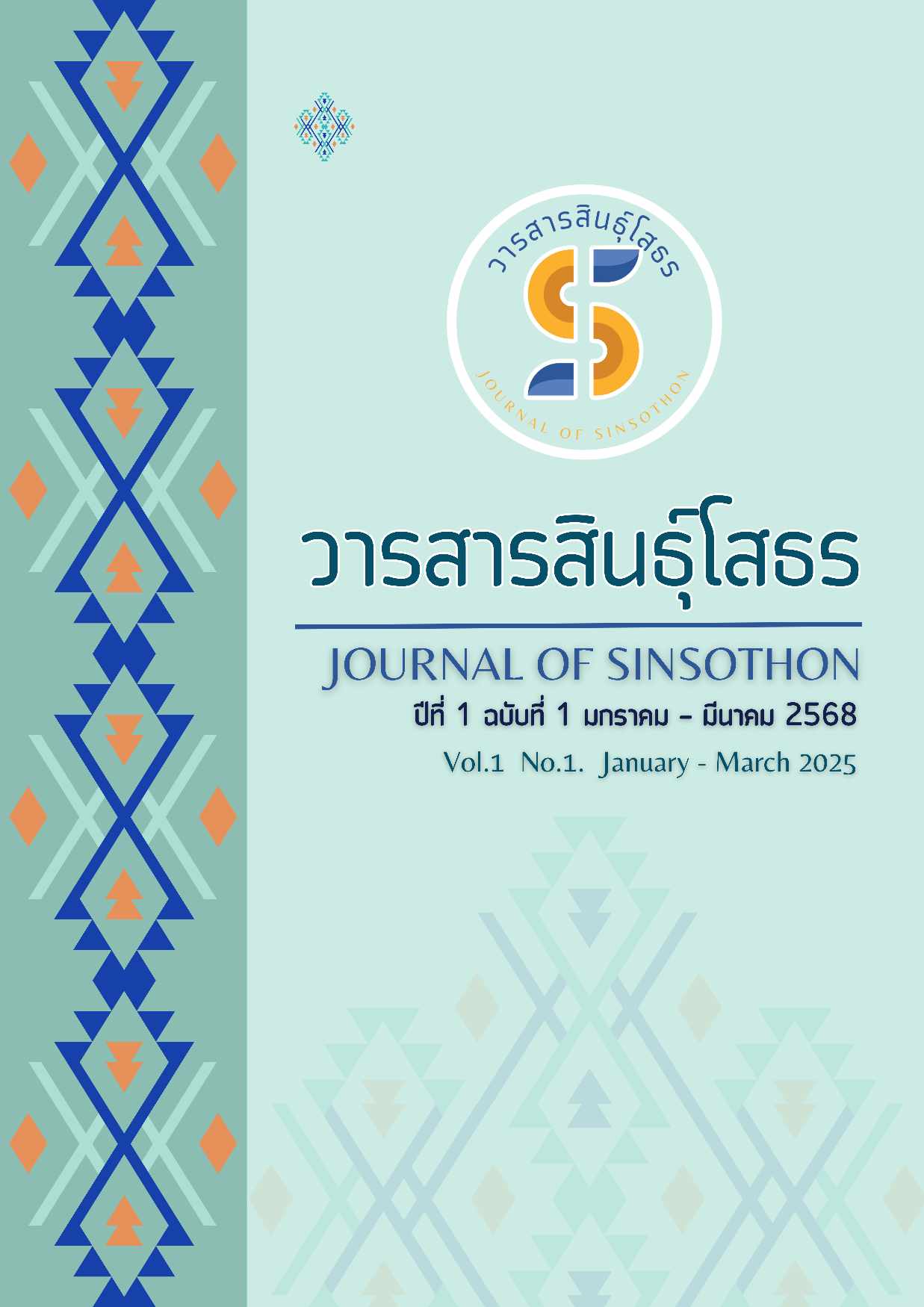Mental development according to Vipassana Kammatthana in New normal society
Keywords:
Mental development, Vipassana Kammatthana, New normal societyAbstract
This academic article aims to study and analyze the development of the mind according to the Vipassana Kammatthana in the new way of life society. The results of the study indicate that the Buddhist principles that emphasize the development of the mind, which is considered an important matter and a process for developing a way of life, namely Vipassana Kammatthana, all people have defilements and will suffer mentally to some extent because the nature of the mind is to cling to emotions. Therefore, it is fabricated and suffers. If we cannot let go, suffering will arise in the mind. Happiness that is higher than sensual pleasure is the happiness that comes from reaching concentration until reaching the highest happiness, Nirvana. In addition, developing the mind according to the Vipassana Kammatthana also helps to enhance the quality of life and inner peace of the mind of individuals, which has a positive effect on society as a whole. This article points out the importance of applying the principles of Vipassana Kammatthana to daily life in order to live a happy life Vipassana Kammatthana is a very important and necessary tool or method for spiritual development. Therefore, mind management and mindfulness in daily life have become important for people in the new era of technology playing a role in life, throughout economic changes, environmental changes, and cultural and social development. Therefore, people are increasingly interested in studying the principles of Buddhism to use as medicine to treat their own physical and mental suffering, especially the development of the Four Foundations of Mindfulness according to the Mahasatipatthana Sutta, which is accepted worldwide as being able to develop intelligence and solve mental problems of people in the new society.
References
กรมสุขภาพจิต. (2563). New normal ชีวิตวิถีใหม่. เรียกใช้เมื่อ 25 สิงหาคม 2567 จาก https://dmh.go.th/news/view.asp?id=2288.
พระครูอนุกูลกัลยาณกิจ (วิชัย วชิรญาโณ). (2565). การพัฒนาวิธีการปฏิบัติวิปัสสนากรรมฐานเพื่อสู่ผลสัมฤทธิ์. วารสารมจรบาฬีศึกษาพุทธโฆสปริทรรศน์, 8(3), 12-34.
พระมหานิพิฐพนธ์ จิรวฑฺฒโน. (2564). การพัฒนาอารมณ์ตามแนวพุทธจิตวิทยาในสังคมชีวิตวิถีใหม่. วารสารบัณฑิตสาเกตปริทรรศน์, 6(2), 89-101.
พระมหาผล นาควโร. (2563). การพัฒนาจิตตามแนววิปัสสนากรรมฐานในสังคมยุค 4.0. วารสารวิชาการ มจร บุรีรัมย์, 5(2), 162-175.
พระมหายุทธพิชาญ ทองจันทร์. (2565). วิถีชีวิตใหม่ (New Normal) ที่ต้องใฝ่ธรรม. วารสารธรรมมงคล, 9(1), 45-58.
มหาวิทยาลัยมหาจุฬาลงกรณราชวิทยาลัย. (2539). พระไตรปิฎกภาษาไทยฉบับมหาจุฬาลงกรณราชวิทยาลัย. กรุงเทพมหานคร: โรงพิมพ์มหาจุฬาลงกรณราชวิทยาลัย.
องค์การอนามัยโลก. (2023). ความเหงาและความโดดเดี่ยวทางสังคมในหมู่ผู้สูงอายุและเยาวชน: แนวโน้มและผลกระทบ 2020–2022. เรียกใช้เมื่อ 25 สิงหาคม 2567 จากhttps://www.who.int/publications/i.
Manuti, A., & Van der Heijden, B. (2022). How normal is the new normal? Individual and organizational implications of the COVID-19 pandemic. Human Resource Management Review.
Idris, A., & Imanuella, S. F. (2024). Social transformation in the new normal: A reflection. In The new normal and its impact on society (pp. 65-67). Springer.
Downloads
Published
Issue
Section
License
Copyright (c) 2025 Journal of Sinsothon

This work is licensed under a Creative Commons Attribution-NonCommercial-NoDerivatives 4.0 International License.
Authors who publish with Journal of TCI agree to the following terms:
- Authors retain copyright and grant the journal right of first publication with the work simultaneously licensed under a Attribution-NonCommercial-NoDerivatives 4.0 International (CC BY-NC-ND 4.0) that allows others to share the work with an acknowledgment of the work's authorship and initial publication in this journal.
- Authors are able to enter into separate, additional contractual arrangements for the non-exclusive distribution of the journal's published version of the work (e.g., post it to an institutional repository or publish it in a book), with an acknowledgment of its initial publication in this journal.
- Authors are permitted and encouraged to post their work online (e.g., in institutional repositories or on their website) prior to and during the submission process, as it can lead to productive exchanges, as well as earlier and greater citation of published work.






